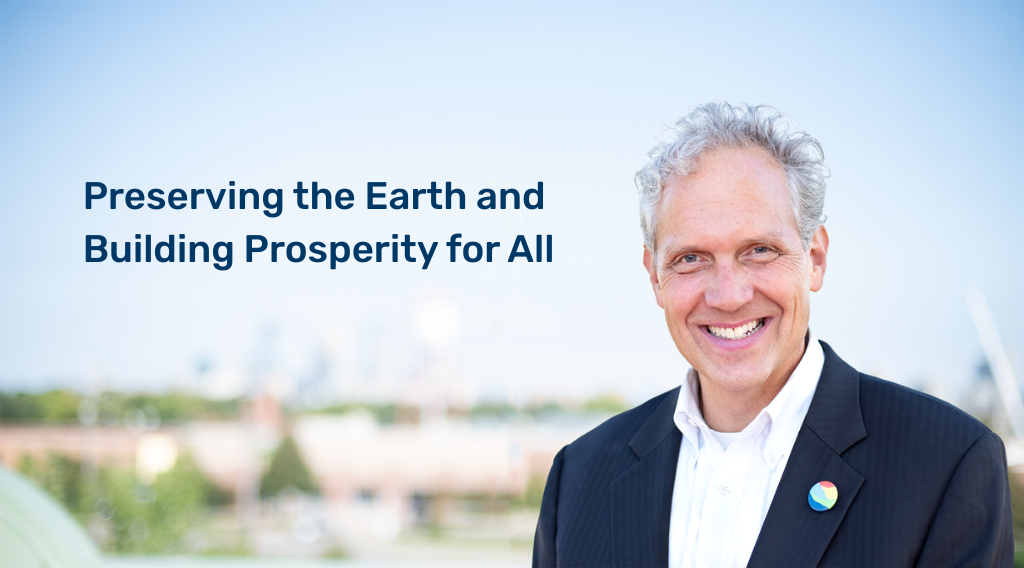
Great Plains Institute co-convened coalition of industry, labor, and environmental interests which boosted support for the FUTURE Act.
MINNEAPOLIS, MN – In what could be one of the most significant energy and environmental accomplishments by Congress in recent memory, the FUTURE Act was signed into U.S. law on Friday, February 9, 2018. Part of the federal budget bill, the FUTURE Act provides a performance-based tax credit for industry to capture and permanently store carbon dioxide or otherwise put it to beneficial use.
The FUTURE Act was supported by an unprecedented coalition of the nation’s largest coal, oil, electric power, ethanol and industrial companies, key industrial labor unions, and national environmental organizations. The coalition, the National Enhanced Oil Recovery Initiative (NEORI), aims to help realize the full potential of carbon dioxide-enhanced oil recovery as a national energy security, economic, and environmental strategy. NEORI is convened by Great Plains Institute (GPI) and the Center for Climate and Energy Solutions
“It is an extraordinary testament to carbon capture that those who are normally on opposing sides of energy policy rallied together in support of this legislation,” said Brad Crabtree, GPI’s vice president of fossil energy and co-convener of NEORI with the Center for Climate and Energy Solutions. “This bi-partisan legislation will help support domestic energy production and further reduce our reliance on imports, protect and create good-paying American energy and industrial jobs, and reduce our nation’s carbon emissions. It’s a true win-win-win for our economy, jobs, and environment.”
The result of six years of work on this legislation, NEORI’s efforts garnered backing from Senate sponsors Heidi Heitkamp (D-ND), Shelley Moore Capito (R-WV), Sheldon Whitehouse (D-RI), and John Barrasso (R-WY), and of House sponsor Congressman Mike Conaway (R-TX). Supporters also included the governors of Kansas, Montana, North Dakota, Oklahoma, Pennsylvania, and Wyoming who co-signed a letter to Congress urging action.
“In an era when it’s often difficult to find policies that leaders of both political parties and a diverse range of business, labor, and environmental interests support, this is not only a great win for the American people but a hopeful reminder of what’s possible when people of good will come together to craft solutions,” GPI CEO Rolf Nordstrom said. “This consensus-building approach to complex energy issues is a hallmark of GPI’s work, and we are proud and honored to have helped facilitate this exceptional outcome. Our deepest respect and thanks to the participants who made this happen.”
This federal tax credit will drive private investment in the deployment of carbon capture technologies at power plants and industrial facilities, spurring innovation and cost reductions in the marketplace, just as has been accomplished with incentives for wind, solar, and other energy technologies. The carbon dioxide captured as a result of this incentive will be stored in existing oilfields and in other geologic formations, or put to beneficial use in making fuels, chemicals, or products.
The carbon dioxide injected into oil fields enables the production of additional oil through a process known as carbon dioxide-enhanced oil recovery (CO2-EOR), while safely and permanently storing that carbon dioxide and achieving a significant net reduction in total emissions in the process—even after accounting for the additional oil produced.
Learn more on GPI’s website or on NEORI’s website, neori.org.
About Great Plains Institute: As a nonpartisan, nonprofit organization, the Great Plains Institute works with diverse interests to transform the energy system to benefit the economy and the environment. We combine our unique consensus-building approach, expert knowledge, research and analysis, and local action to work on solutions that strengthen communities and provide greater economic opportunity through creation of higher paying jobs, expansion of the nation’s industrial base, and greater domestic energy independence while eliminating carbon emissions.
CONTACT: Gail Nosek, 651-247-1151, [email protected]



